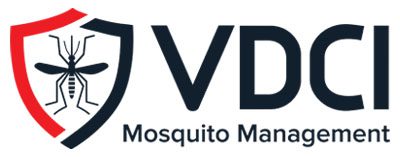Managing Mosquitoes at the Larval Stage
Most people have heard the stories about mosquitoes being capable of using the tiniest amount of water as habitat in which to lay their eggs. There’s no doubt that many of these same people believe that such stories are often exaggerations because surely a mosquito would not really lay eggs in a bottle cap, right? Well, I can honestly say that I have seen exactly that, mosquito larvae wiggling around in a two-liter soda bottle’s lid, in a trash pile in Mississippi in 2004. No exaggeration, no embellishment, no joke.
Mosquitoes are easily some of the most adaptable and persistent animals on the planet. They are found on every continent except Antarctica, from the hottest deserts and rainforests to the icy tundra of the Arctic Circle. Essentially, if there is standing water with enough nutrients to sustain the development of their larvae, there is a good chance that mosquitoes will be there, and while some species have adapted to very specific larval habitats and environments, for others, almost any stagnant water will do. Thus, larval surveillance and habitat identification are key components of a successful integrated mosquito management program.
Larval mosquito habitats are generally divided into three types: permanent water, temporary floodwater, and containers. Permanent water sources are, as the name implies, bodies of water that remain for long periods of time, or even year-round. Such sources include lakes, rivers, ponds, water treatment facilities, swamps, and cattail marshes. Permanent water habitats are often large and can produce significant long-term mosquito populations. In the Unites States Culex tarsalis, a primary vector of West Nile virus, is an example of a permanent water mosquito of great importance to public health programs and abatement districts.
Although permanent water mosquitoes can cause persistent problems, it is often the temporary floodwater mosquitoes that emerge all at once in the greatest numbers. Temporary water sources are present for relatively short periods of time, usually occurring seasonally or after significant rainfall. These habitats include river floodplains, tidal salt marshes, snowmelt pools, irrigation water, and drainage ditches along with countless others. Species in the Aedes/Ochlerotatus genera are some of the most prevalent floodwater mosquitoes, often inundating towns and neighborhoods with huge populations of biting adult mosquitoes in municipalities without mosquito management programs.
Finally, some species of mosquitoes have adapted to habitats where they only lay eggs in either naturally occurring or artificial containers, such as treeholes, buckets, tires, planter trays, bird baths, and yes, even bottle caps! Aedes albopictus, the Asian Tiger mosquito, is the species I witnessed in the bottle cap in Mississippi all those years ago. The Asian Tiger mosquito can transmit Dengue fever, Chikungunya virus, and possibly Zika virus and is currently one of the species of greatest concern in the Caribbean islands and North, South, and Central America. This species is particularly troublesome to humans because it is often active during the day, frequently biting people as they go about their daily activities, work in their yards, or play outdoors.
Knowing what type of larval habitat individual mosquito species prefer is very important for mosquito abatement professionals. It allows people to target their larval control activities in the right area and not waste limited resources inspecting every possible habitat for the presence of mosquito larvae.
Contact Us to Learn More About Effective Mosquito Management Strategies:
 Since 1992, Vector Disease Control International (VDCI) has taken pride in providing municipalities, mosquito abatement districts, industrial sites, planned communities, homeowners associations, and golf courses with the tools they need to run effective mosquito control programs. We are determined to protect the public health of the communities in which we operate. Our mosquito control professionals have over 100 years of combined experience in the field of public health, specifically vector disease control. We strive to provide the most effective and scientifically sound mosquito surveillance and control programs possible based on an Integrated Mosquito Management approach recommended by the American Mosquito Control Association (AMCA) and Centers for Disease Control and Prevention (CDC). VDCI is the only company in the country that can manage all aspects of an integrated mosquito management program, from surveillance to disease testing to aerial application in emergency situations.
Since 1992, Vector Disease Control International (VDCI) has taken pride in providing municipalities, mosquito abatement districts, industrial sites, planned communities, homeowners associations, and golf courses with the tools they need to run effective mosquito control programs. We are determined to protect the public health of the communities in which we operate. Our mosquito control professionals have over 100 years of combined experience in the field of public health, specifically vector disease control. We strive to provide the most effective and scientifically sound mosquito surveillance and control programs possible based on an Integrated Mosquito Management approach recommended by the American Mosquito Control Association (AMCA) and Centers for Disease Control and Prevention (CDC). VDCI is the only company in the country that can manage all aspects of an integrated mosquito management program, from surveillance to disease testing to aerial application in emergency situations.

